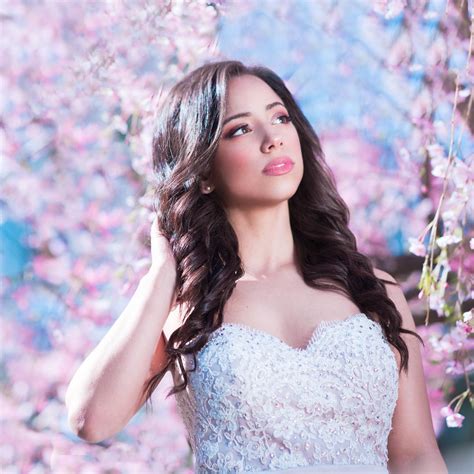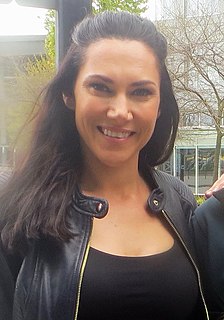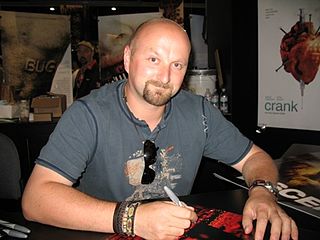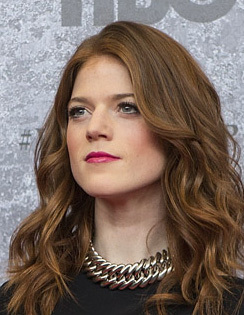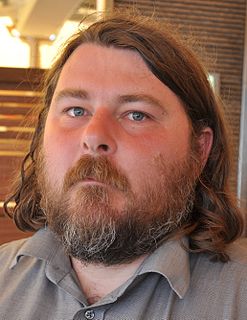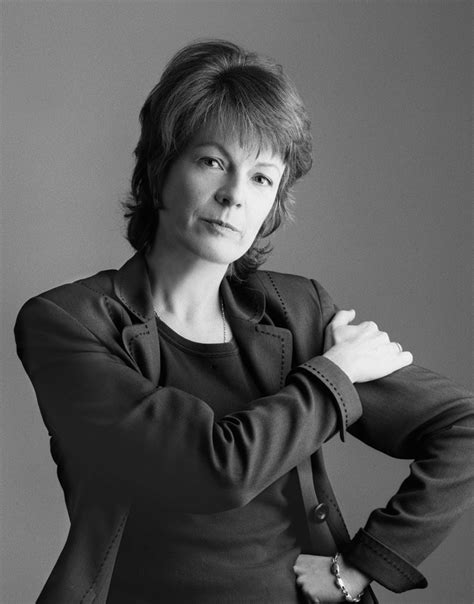A Quote by Kiana Madeira
We were fortunate that most of the '1666' stuff we did shoot all together. We were filming out in Hampton, Georgia. It was so amazing. They built a village for us to shoot in. It made our job as actors so much easier.
Related Quotes
I always thought the piano scene was kind of unique to shoot because we were actually able to film with the playback of the actual song. And that was quite amazing because it almost made it easier - music is usually something that is added after filming has finished so to be able to shoot a scene with music was really wonderful.
The situation they [journalists and Edward Snowden] were in was incredibly heightened. The stakes were high. There was a lot of pressure, a lot of tension, a lot of sense of claustrophobic, clandestine energy that I think was exhilarating for us to explore and recreate. We were fortunate to shoot a fair amount of our stuff at the actual hotel where it all happened in Hong Kong. That added another element of very similitude to the situation, so I feel like it was exciting.
Usually, I have in mind what I want to do. I shoot pretty economically, so I'm not shooting tons of stuff that I could change, all that much. I'll cut something or add a little something back, but not too much. This is maybe the producer part of me, but I'm always worried about the budget, so I shoot what I know I need to shoot for the film.
There were a couple of times that we did end up moving the set [of Helix] outside to shoot some of the outside scenes, just because we needed a bit more space, and that ended up being a little bit more helpful and easier to breathe, when you're dealing with some of the fake snow stuff. It was a lot of fun, and it looks amazing.
The great thing about not having a script is there's nothing you have to shoot that day. When you start filming, you can shoot anything you want. There's no pressure to shoot anything. Whatever interests you that day is what you're shooting. That's a big liberation that makes it more enjoyable and more relaxed. I think if you have that kind of framework it can make it a much more satisfying thing to work on and to watch as well.
When I first started in the industry, there were - this is prior to the era of computer graphics and all these digital tools - there were some pretty rigid, technologically imposed limitations about how you shoot things, because if you didn't shoot 'em the right way, you couldn't make the shot work.
I tend to shoot really quick so you don't get the problems you might get on a traditional film where you shoot one way, then another, and it's pissing down with rain and they won't cut together. We shoot so fast we can incorporate the weather into it. The worst weather we had was when they were in the caravan up the mountain and there was no cover. One man's weather is another man's production value. To create the sleet would cost a fortune but we got it for free so we'll just have to go with it.
I'm fortunate to have an amazing, strong mother who is so supportive of everything me and my sisters did growing up - but she was someone who never forced us to go swim or to go do this or that. She helped us think about certain consequences when we needed to, but we made our own decisions. I think if I were forced to swim, I wouldn't have stayed in the pool as long as I did.
I know that sounds so circular, but for you, what you were made to do, is different than what I was made to do. But instead of spending all of our time having Bible studies about what we were made to do, go do stuff and you'll figure out what you were made to do, because you'll be great at some things and you'll be terrible at others.
